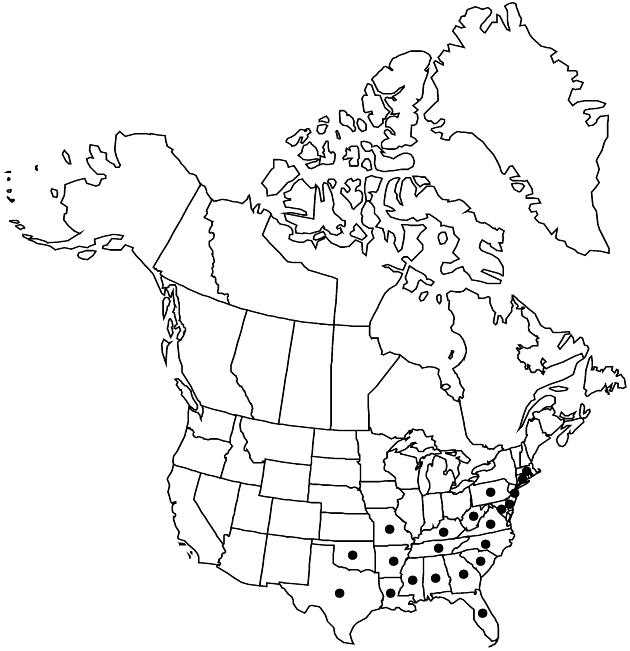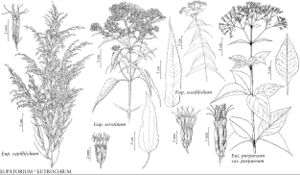Eupatorium capillifolium
Mem. Torrey Bot. Club 5: 311. 1894.
Perennials, 50–200 cm. Stems (from short caudices) multiple, branched distally, puberulent throughout. Leaves opposite (proximal) or alternate (nodes often appearing leafy because of development of leaves on lateral buds without axis elongation); sessile; blades (often ternately lobed) or lobes linear, 5–100 × 0.2–0.5 (–1) mm, bases ± cuneate, margins entire (strongly revolute), apices rounded to acute, faces glabrate, glanddotted. Heads in dense, paniculiform arrays. Phyllaries 8–10 in 2–3 series, oblong, 0.5–2.5 × 0.2–0.5 mm, apices acuminate and mucronate, abaxial faces glabrous or glabrate, not or little, if at all, glanddotted. Florets 5; corollas 2–2.5 mm. Cypselae 1–1.7 mm; pappi of 20–30 bristles 2–2.5 mm. 2n = 20.
Phenology: Flowering Aug–Oct.
Habitat: Old fields, open sites, roadsides, flatwoods
Elevation: 10–300 m
Distribution

Ala., Ark., Conn., Del., Fla., Ga., Ky., La., Md., Mass., Miss., Mo., N.J., N.C., Okla., Pa., S.C., Tenn., Tex., Va., W.Va.
Discussion
Selected References
None.
Lower Taxa
"fine" is not a number.
